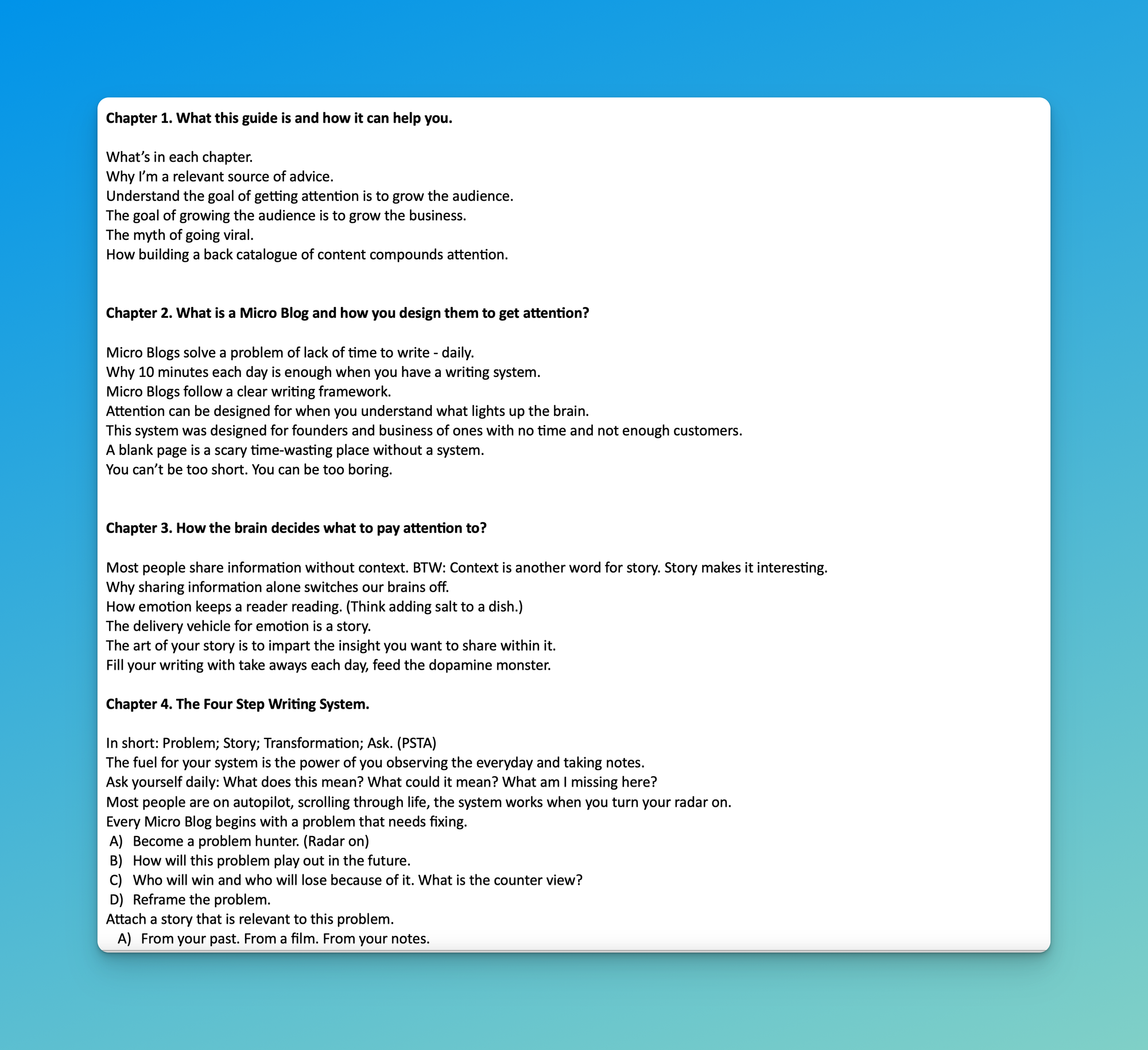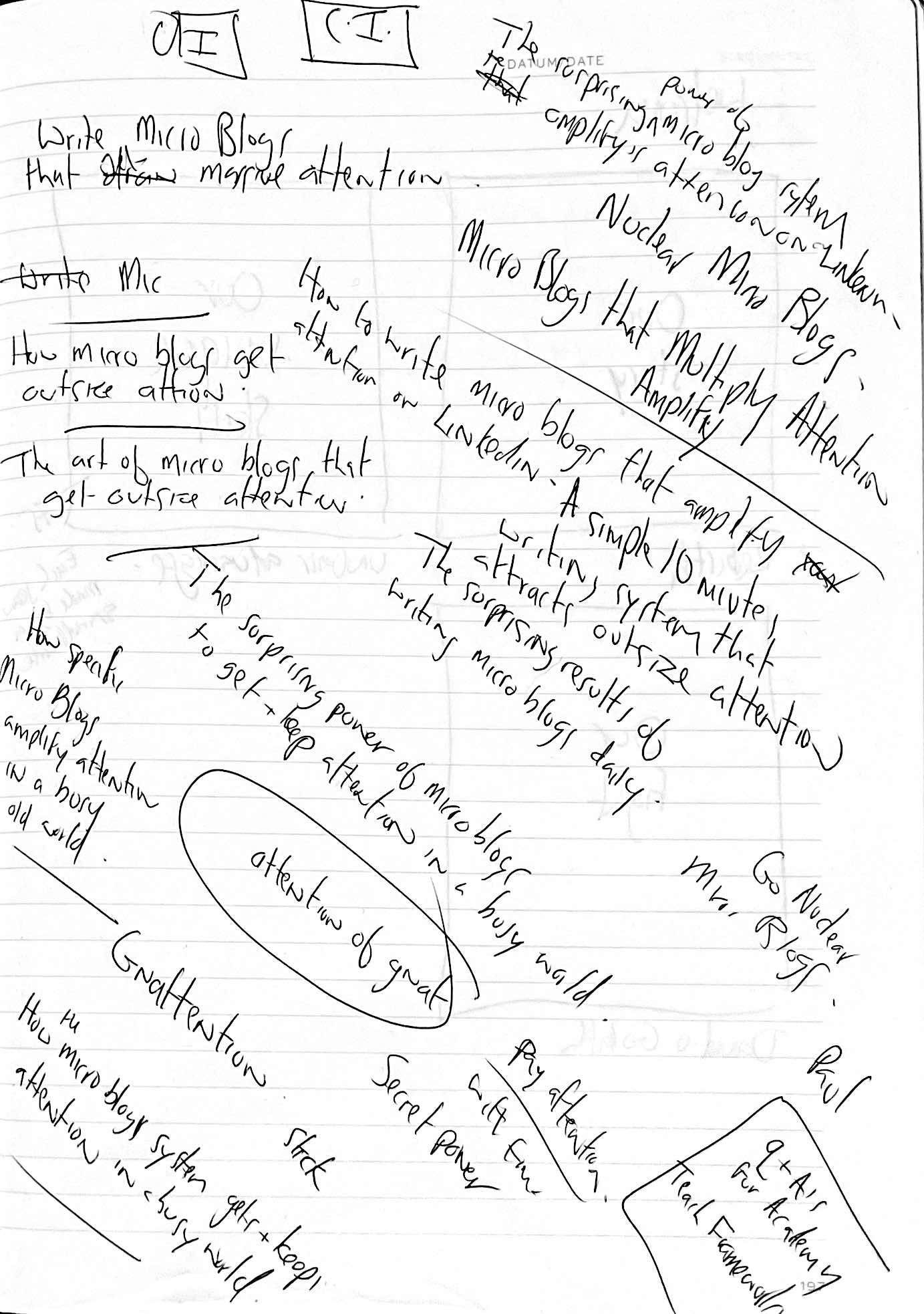Three-minute read. Or less.
Welcome to another edition of Three Wins, where I walk you through my process of launching an online course in 2024. I will share my wins and, because this is real life, my mistakes. I want to make this useful.
Even if you are NOT launching anything.
Today, I want to talk about the mistakes I made before launching. My intention going forward is to go to the next level. To stop dabbling.
This is why I am doing all this.
- Not spending enough time on what matters.
This week, I spent an entire day just on the Table of Contents of the book I am writing. Why? Because that determines the success of the book. Before I write, I must decide what is to be written.
It was hard. It made my brain hurt. But it decided the structure of the book.
I am now clear on what needs to be written. How it builds on each bit. I can now zoom out and know how to make each point add to the next one.
- I used to write the table of contents after it was written.
- I spent little time on it.
- The T.O.C is the blueprint. It must be clear. And be descriptive.

The aim here is to improve the book before it is written.
- Doing the book is to clarify my thinking for the online course.
- The aim of the beta workshops is to make the online course as useful as I can.
- When I finally launch the online course, I will not be guessing if it was useful.
I will be sharing the Table of Contents on Useful Books next week. I expect it to change a good deal with the feedback loop from the community.
The ‘Before’ you launch is where success is decided.
Hmmm.
That is my big reframe.
A win.
- I spent another day on this.
The book title. And its subhead. I expect to spend many more days on it. I am not there yet. But I did invent a new word. I was inspired by Freakonomics, and on a run around the farm, a word popped into my head.
My way is to write everything all down and judge it later.
But know this: People do judge a book by its cover.
Especially the promise it makes to you.

My framework is taken from Snow Leopard.
- Non-obvious title.
- Obvious subhead.
Or.
- Obvious title.
- Non-obvious subhead.
To get attention, the power of the counterintuitive is something we need to pay attention to.
If you increase your counter-intuitiveness score rating to your idea, and it holds water, you will attract outsized attention.
A win.
- Teach Frameworks.
I know I have been guilty of this in the past, where I chuck a ton of ideas at people, and I hope some stick. I am learning that teaching is a particular skill.
Frameworks make complex things simple. And, importantly, actionable.
For example, a framework from today could be:
- 50% of the time must go on book title and subhead.
- 30% of the time on the Table of Contents.
- 20% of the time on writing the book.
I am not saying that is the correct maths, but this is what most authors do.
- 90% of the time writing the book.
- 7% of the time on the title.
- 3% of the time on Table of Contents.
I would guess that 80% of the success of a book comes from its title and subhead. And it will be its counter-intuitiveness, that is the driver of most of that. Yet, it will be lucky to get 10% of the writer’s time. You get my point.
A win.
I hope this was useful.
Talk next week.
Have a good switch-off this weekend.
David
